1/1/2009 Author: Panos Y. Papalambros
Volume: 131(1) – January, 2009
For anyone who lived through it, year 2008 will be a very memorable one. Each of us may have one or more reasons to remember it, for one thing because these reasons are likely to be with us for a while. The global economic turmoil has made clear the extent of economic globalization; political events in the USA were watched closely and opined by the entire world, as another side of globalization; our digital life has taken one further step of unabated growth, witnessed by various Google products and URLs as the exclusive references in our students’ submitted reports.
Well, what do all these worldly things have to do with a scholarly journal like JMD? I submit, a lot.
In 1976, in the foreword of his book The Existential Pleasures of Engineering, Samuel C. Florman wrote: “Socrates said that the unconsidered life is not worth living. If the statement is right, as I believe it is, then those of us who are engineers in the final quarter of the twentieth century are confronted with certain questions of compelling interest. What is the nature of the engineering experience in our time? What is it like to be an engineer at the moment that the profession has achieved unprecedented successes, and simultaneously is being accused of having brought our civilization to the brink of ruin?” We could be just as well asking the same questions today. JMD is a scholarly engineering journal. If we looked at articles published in JMD would we get any answers to Florman’s questions? Should we?
I often start my opening lecture in my design classes asking this question: “Who was the last President of the United States that was a trained engineer?” (Look it up if you don’t know.) For comparison, in our increasingly multi-cultural classes I also ask the same question about the prime minister or president of other home countries of students. (Look those up as well, for an instructive experience.) We then repeat the question for the national legislatures. The point, of course, is that there are hardly any engineers partaking in government decision making. If you think that real decision making actually takes place in the corporate boardrooms, check those out as well – how many CEOs of major manufacturing (or any) companies are engineers—and in which countries? How does it feel, if you are professionally irrelevant to any decision of importance made in your name?
Thus, I have been thinking for a while about how a scholarly engineering journal, indeed a design journal, can have real impact on our world — apart from “impact factors.” Perhaps we should encourage more articles that:
• Link engineering decision making with the human users, whether at the individual level (say, ergonomics) or at the organized social level (say, market or regulatory systems).
• Describe attractive applications that would disseminate research results into practice.
• Give tools and methods for better design instruction.
• Address design for sustainability, new energy sources, new manufacturing methods.
• Show more explicitly how research results, say a better mechanism, directly affect the end user, manufacturer, or the economy.
I am sure many of us try to do these already. But more are needed. One may quickly start worrying whether such articles will dilute the scholarly character of JMD. This is certainly possible, but not more so than for any other article. Impact implies relevance, and impact factors propagated by round-robin citations will not make us more honestly relevant. In any case, I welcome both your ideas and your manuscript submissions on the above topics.
We should also look at how we can position JMD in an increasingly digital communication world. To this end, our new website asmejmd.org will serve as a supplementary platform to pilot new ideas and practices, which eventually may be transferred to the entire ASME journal family. As the site gets populated with more materials, I also welcome your input about how to make it more useful to you —particularly the younger generation of JMD authors and readers.
While I am looking forward to another year of serving the JMD community, I want to thank the authors, reviewers and, most of all, our associate editors for their outstanding contributions this past year,
Best wishes for the New Year!


